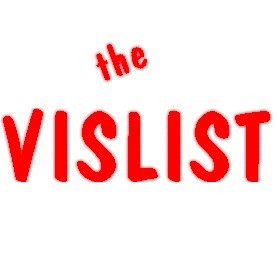Copy Link
Add to Bookmark
Report
VISION-LIST Digest 1989 06 03

Vision-List Digest Sat Jun 03 17:05:23 PDT 89
- Send submissions to Vision-List@ADS.COM
- Send requests for list membership to Vision-List-Request@ADS.COM
Today's Topics:
Request for range images
Rule based decisions vs functional decisions
Post Doctoral Faculty Positions in Computer Science at CMU
Invitation to Join the SUN Medical Users Group
------------------------------
Date: 02 Jun 89 10:19:06+0200
From: Martin Peter <mpeter@bernina.zir.ethz.ch>
Subject: Request for range images
I'm working as a phd student on a 3-d object recognition system, based
on a constraint search algorithm. Typical application of the system
may be a robot for sorting parcels in a postoffice. Objects in the
scene are modeled with planar, cylindrical and general curved surface
patches.Occlusion is allowed. Inputdatas should come from a structured
light sensor, which the low level part will convert into surface patch
information. Unfortunately the structured light sensor is not yet
working, so I'm playing around with some simple synthetically
generated images.
Question: Are there in the Computer Vision Community some standart
range images avaible, maybe some standart benchmark scenes ? Can some
one mail me some range images ?
Thanks for any help.
[ This is a great idea. It is often difficult for all of us to get
interesting and useful data. Anyone willing to share data with others,
please post a description of its type, size, properties, etc. Anyone
who knows of a public repository for this type of data, please post
what you know. One would think that the U.S. Gov't, with all the
image based work they fund, has at least several public repositories
which could be used to obtain data. Any info anyone?
phil... ]
Martin Peter > EAN: mpeter@zir.ethz.ch
Computer Vison Lab > UUCP: mpeter@ethz.uucp
Swiss Fed. Inst. Of Tech. > BITNET: mpeter@czheth5a.bitnet
IKT/BIWI
ETH Zurich/Swizterland
------------------------------
Date: 3 Jun 89 01:47:52 GMT
From: nealiphc@blake.acs.washington.edu (Phillip Neal)
Subject: rule based decisions vs functional decisions
Keywords: image understanding, machine learning , image processing
Organization: Univ of Washington, Seattle
Does anybody have any performance numbers for a rule based decision
making image segmentation method vs a regular functional decision
making method.
In other words, which is better -- theoretically or empirically in
terms of classification rate:
1. Developing rules like:
If the edge is more than 20 grey levels and the major direction is north
east, then the confidence factor for this rule is 20
else
confidence factor for this rule is 0
vs
2. y = f(delta(grey),direction)
if(y.gt..5) then this is a true edge.
and the coefficients are 'learned' through some inductive process
like discriminant analysis or some bayesian update routine.
That's all for now,
Phil Neal ---- nealiphc@blake.acs.washington.edu
------------------------------
Date: Wednesday, 31 May 1989 23:12:50 EDT
From: Dave.McKeown@maps.cs.cmu.edu
Subject: Post Doctoral Faculty Positions in Computer Science at CMU
Post Doctoral Faculty Positions in Computer Science
Digital Mapping Laboratory
School of Computer Science
Carnegie Mellon University
Applications are invited for a post-doctoral research faculty position in the
School of Computer Science at Carnegie Mellon University. This position is
tenable for two years with possibilities for appointment to the regular
Research or Systems Faculty track within the School.
The successful applicant will be expected to play a major role in the current
and future research efforts within the Digital Mapping Laboratory. Our
research is broadly focused on the automated interpretation of remotely
sensed data including high-resolution aerial imagery and multi-spectral
imagery such as SPOT and Landsat TM. Current areas of investigation include
knowledge-based scene analysis, automated acquisition of spatial and
structural constraints, cultural feature extraction (road network, and
building detection and delineation), automated scene registration and stereo
matching, parallel architectures for production systems, and large-scale
spatial databases.
A strong background in one or more of these or related areas is required.
Excellent written and verbal communication skills are also expected.
Applicants should send a curriculum vitae and names of at least three
references to:
David M. McKeown
Digital Mapping Laboratory
School of Computer Science
Carnegie Mellon University
Pittsburgh, PA 15213.
Carnegie Mellon is an Equal Opportunity/Affirmative Action employer.
----------------------------------------------------------------------
Date: Wed, 31 May 89 10:26:32 PDT
From: clairee%sunwhere@Sun.COM (Claire Eurglunes)
Subject: Invitation to Join the SUN Medical Users Group
Greetings:
My name is Claire Eurglunes and I have recently been hired by SUN
Microsystems in Mountain View to form the SUN Medical Users Group. I
work under Ken Macrae in the Scientific Products area.
I am currently looking for all SUN and TAAC users that may be
interested in joining this users group. We are planning a first
meeting towards the end of June.
Please contact me if you are interested...we hope to establish users
lists, a bibliography of papers, abstracts and presentations, a
software consortium, etc.
Claire Eurglunes
sunwhere.Sun.COM!clairee@sun.com
(415)336-5131
------------------------------
End of VISION-LIST
********************




















